Understanding the Importance of Carriage Bolt Selection in Construction Projects
In the realm of construction projects, the selection of hardware components plays a crucial role in ensuring structural integrity and durability. Among these essential fasteners, the Carriage Bolt stands out due to its unique design and functionality. Characterized by a rounded head and a square or rectangular shank, carriage bolts are specifically engineered to secure metal and wood elements, preventing them from loosening under vibration and load. Their versatility makes them ideal for a variety of applications, from decking to furniture assembly and everything in between.

However, selecting the appropriate carriage bolt involves understanding various factors such as material compatibility, size, and load requirements. This article delves into the importance of careful carriage bolt selection, highlighting the best practices to ensure the safety and efficacy of construction projects. By optimizing the choice of carriage bolts, builders can enhance the overall stability and longevity of their structures, making this seemingly small component a significant player in construction success.
Carriage Bolts: Definition and Key Characteristics in Construction
 Carriage bolts are essential fasteners commonly used in construction projects due to their distinctive characteristics. Unlike standard bolts, carriage bolts feature a rounded head and a square section beneath the head, which helps in preventing rotation when tightened. This unique design makes them especially suitable for securing wood to wood or wood to metal connections, providing strength and stability in various structural applications. Their smooth exterior allows for easy installation without the need for a wrench, making them a practical choice for both professional and DIY builders.
Carriage bolts are essential fasteners commonly used in construction projects due to their distinctive characteristics. Unlike standard bolts, carriage bolts feature a rounded head and a square section beneath the head, which helps in preventing rotation when tightened. This unique design makes them especially suitable for securing wood to wood or wood to metal connections, providing strength and stability in various structural applications. Their smooth exterior allows for easy installation without the need for a wrench, making them a practical choice for both professional and DIY builders.
Another key characteristic of carriage bolts is their availability in different materials and grades, which impacts their performance and suitability for specific environments. For instance, stainless steel carriage bolts offer enhanced corrosion resistance, making them ideal for outdoor settings or marine applications. Additionally, the length and diameter of carriage bolts can be customized to fit the requirements of different construction projects, ensuring a secure and reliable fastening solution. Understanding these aspects of carriage bolt selection is crucial for engineers and builders to ensure the integrity and durability of their constructions.
The Role of Carriage Bolts in Structural Integrity and Safety
Carriage bolts play a pivotal role in ensuring the structural integrity and safety of construction projects. These fasteners, characterized by their smooth, rounded heads and square necks, provide a strong connection between various components, particularly in wooden or hollow materials. According to a report from the American Institute of Steel Construction (AISC), it is estimated that up to 30% of structural failures in construction can be traced back to improper fastener selection or installation. This underscores the necessity of carefully selecting the right carriage bolts for specific applications.
Moreover, the load-bearing capacity of carriage bolts significantly impacts the overall safety of a structure. When properly sized and installed, carriage bolts can withstand high tensile and shear loads, which is crucial in load-bearing applications such as beams and supports. Data from the Fastener Quality Act (FQA) indicates that using bolts that meet established ASTM standards can enhance safety and performance, reducing the risk of catastrophic failures. Proper selection based on factors such as material, diameter, and length can prevent issues related to fatigue and stress, making carriage bolts an integral part of any construction project focused on durability and safety.
Understanding the Importance of Carriage Bolt Selection in Construction Projects
| Dimension | Material | Coating | Load Capacity (lbs) | Common Applications |
|---|---|---|---|---|
| 1/4" x 2" | Steel | Zinc Plated | 300 | Furniture Assembly |
| 5/16" x 3" | Stainless Steel | None | 600 | Decking |
| 3/8" x 4" | Carbon Steel | Black Oxide | 800 | Construction Bracing |
| 1/2" x 5" | Alloy Steel | Galvanized | 1200 | Heavy Machinery Assembly |
Factors to Consider When Selecting Carriage Bolts for Construction Projects
When selecting carriage bolts for construction projects, understanding the key factors is crucial for ensuring structural integrity and safety. One primary consideration is the material of the bolt. Carriage bolts are typically made from steel, stainless steel, or other alloys. Depending on the environment they will be exposed to, such as moisture or corrosive elements, choosing a material with the appropriate coating or corrosion resistance is critical.
Another important factor is the size and length of the bolt, which should be determined based on the specific application and thickness of the materials being fastened. Additionally, the thread type and diameter can significantly impact load-bearing capacity and ease of installation. A thorough assessment of load requirements and operational conditions will help in selecting the right size.
**Tips:** When choosing carriage bolts, always refer to construction codes and guidelines to ensure compliance with safety standards. It's also recommended to consider pre-drilled holes in your materials to simplify the installation process. Lastly, consulting with a hardware specialist can provide insights into the best options available for your particular project needs.
Understanding the Importance of Carriage Bolt Selection in Construction Projects
Common Applications of Carriage Bolts in Various Construction Materials
Carriage bolts play a crucial role in the construction industry, particularly due to their distinctive rounded heads and square necks that prevent the bolt from turning when the nut is tightened. These features make them ideal for fastening applications requiring a strong and secure joint. Carriage bolts are commonly used in wood construction, such as decking and fence building, where they provide a reliable connection that withstands tension and shear forces. Their smooth, rounded heads also contribute to a clean finish, making them aesthetically pleasing for visible applications.
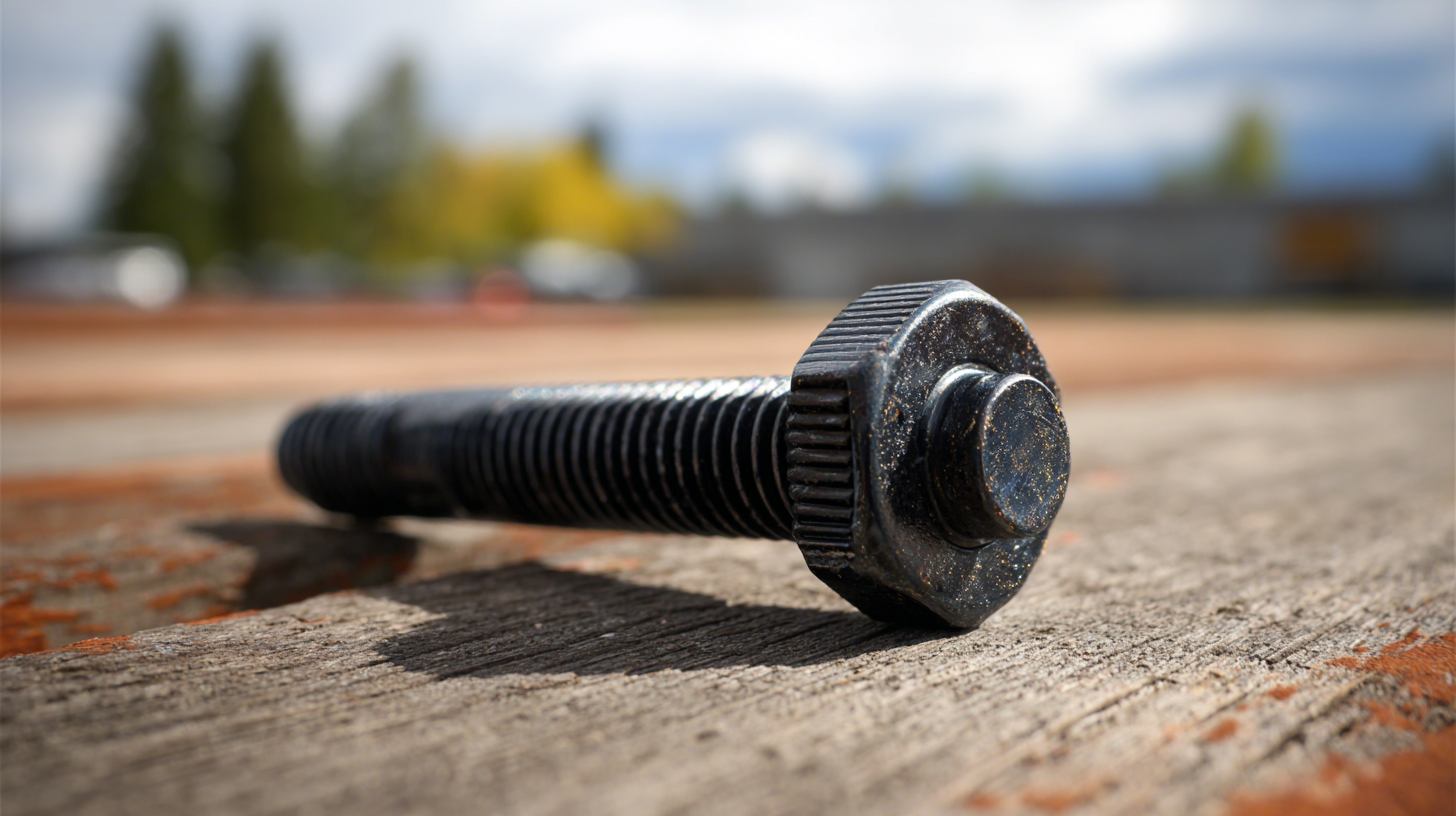
In addition to wood, carriage bolts are frequently used in metal-to-metal connections. They are often employed in structural applications, like steel frame assemblies and heavy equipment installations. The ability of carriage bolts to be easily inserted into pre-drilled holes allows for efficient assembly and disassembly, which is particularly advantageous for temporary structures. Furthermore, these bolts are also utilized in concrete constructions, where they serve as anchors for attaching various fixtures. This versatility across diverse materials underscores the importance of selecting the right carriage bolt for specific construction needs, ensuring safety and structural integrity throughout the project.
Best Practices for Installation and Maintenance of Carriage Bolts
When working with carriage bolts in construction projects, proper installation is crucial to ensure structural integrity and longevity. Before installation, it's essential to select the appropriate size and material of the carriage bolts based on the specific requirements of the project. The bolt should pass through the material with a tight fit, ensuring that the square head remains embedded in the wood or other material to provide resistance against spinning during tightening.
Once the bolts are selected and fitted, maintenance plays a key role in maximizing their lifespan. Regular inspections should be conducted to check for signs of rust or corrosion, especially in outdoor settings or environments exposed to moisture. Applying a protective coating or lubricant can help prevent oxidation. Additionally, it's advisable to periodically check the tightness of the bolts to ensure they haven't loosened over time due to vibrations or settling of materials. By following these best practices for installation and maintenance, construction professionals can enhance the reliability and effectiveness of carriage bolts in their projects.
Related Posts
-
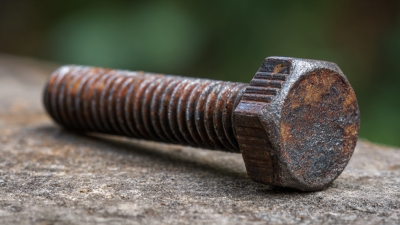
How to Choose the Right Carriage Bolt for Your Next Project
-
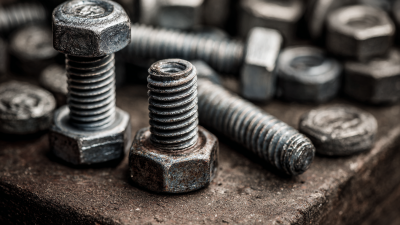
Ultimate Guide to Choosing the Right Hot Sale Carriage Bolt for Your Projects
-
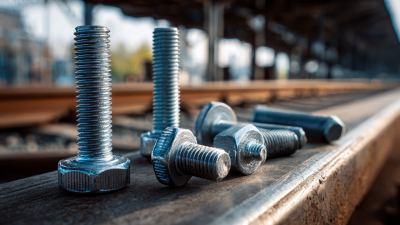
5 Essential Tips for Choosing the Right Truss Head Carriage Bolt for Your Project
-
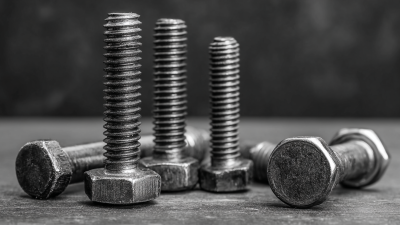
How to Choose the Right High Tensile Carriage Bolt for Your Project Needs
-
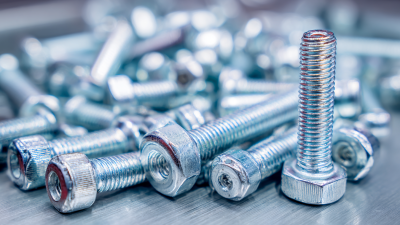
Innovative Trends in Truss Head Carriage Bolt Industry at 2025 China Import and Export Fair
-

How to Choose the Right Truss Head Carriage Bolt for Your Project
